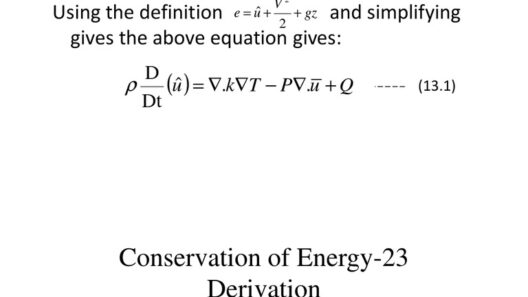Fuel energy conservation is an imperative endeavor in today’s society, particularly in the face of climate change and its attendant dire consequences. Maximizing mileage while minimizing waste should be a core concern for individuals and businesses alike. In this discussion, we will explore various strategies to optimize fuel efficiency, diving into techniques that encompass driving habits, vehicle maintenance, and broader systemic changes. Collectively, these efforts will facilitate not just cost savings, but also a substantial reduction in carbon footprints.
One of the most impactful ways to conserve fuel energy lies in the realm of driving habits. Adopting a gentle and smooth driving style can significantly enhance fuel efficiency. Rapid acceleration and hard braking create undue stress on engines and expend more fuel. By maintaining a steady speed and anticipating traffic flow, drivers can achieve a remarkable improvement in mileage. Utilizing cruise control on highways further supports this methodology, allowing the vehicle to operate at optimal RPMs without unnecessary fluctuations.
The choice of speed is crucial as well; studies have shown that fuel efficiency diminishes considerably at speeds above 50 miles per hour. By adhering to speed limits and embracing a more moderate pace, drivers can maximize their fuel economy. Additionally, the use of air conditioning should be moderated. While comfortable temperatures are essential, excessive reliance on air conditioning systems can lead to increased fuel consumption. Opening windows at lower speeds may present a viable alternative, balancing comfort with efficiency.
Moreover, vehicle load significantly affects fuel consumption. Every additional pound requires more energy for acceleration, thus increasing the amount of fuel burned. Drivers should strive to remove unnecessary items from their vehicles, reducing overall weight, and maximizing efficiency. Further, roof racks and carriers can disrupt aerodynamics; thus, removing them when not in use can yield substantial benefits, improving the vehicle’s profile and reducing drag.
Vehicle maintenance plays an equally critical role in fuel efficiency. Regular inspections ensure that tires are correctly inflated. Under-inflated tires create additional rolling resistance, demanding more fuel for movement. Keeping tires inflated to the manufacturer’s recommended levels can improve mileage by up to 3%. Furthermore, routine oil changes with the appropriate engine lubricant optimize engine performance, enhancing fuel efficiency. It’s essential to know that engine air filters should be checked and replaced as necessary. A clean filter allows for better airflow, which in turn improves fuel combustion.
Furthermore, understanding the driving environment can also help conserve fuel energy. Utilizing traffic apps or GPS with real-time traffic updates can assist in avoiding delays and congestion, which are notorious fuel wasters. Planning routes that minimize stop-and-go traffic can effectively enhance efficiency. In urban settings specifically, a careful selection of routes that favor smoother traffic flows will mitigate fuel expenditure and conserve energy.
In addition to individual efforts, it’s pertinent to consider the systemic changes within the automotive industry and infrastructure. Embracing public transportation systems, which are increasingly designed to be energy-efficient, can play a pivotal role in fuel conservation. Cities can promote policies that encourage public transport usage, thereby reducing the number of individual vehicles on the road. Bicycling and walking infrastructure can also be enhanced, further encouraging a shift from fuel-consuming modes of transport to greener alternatives.
Advancements in technology also offer promising avenues for fuel conservation. Electric and hybrid vehicles are becoming more mainstream, often providing satisfactory alternatives to traditional internal combustion engines. Incentivizing consumers to transition to these vehicles can derive significant environmental benefits. Moreover, the integration of renewable energy sources into automotive production will further reduce the overall ecological impact of vehicles, fostering a cultural shift towards sustainability.
Another compelling strategy within the conservation discourse is carpooling. By sharing rides with others, individuals can drastically reduce the number of vehicles on the road. Carpooling not only conserves fuel but also decreases traffic congestion and reduces greenhouse gas emissions. Additionally, businesses are increasingly recognizing the value of offering incentives for employees who participate in carpooling or use public transit, thereby fostering a corporate culture attuned to conservation efforts.
As consumer awareness grows, the demand for more sustainable products is rising. The fuel industry can also respond by investing in alternative fuels, such as biodiesel or ethanol. These renewable resources can reduce reliance on fossil fuels, and thus mitigate their environmental impact. Governments and organizations should support research into these alternatives, leading to innovations that make such resources more viable for the everyday consumer.
Ultimately, the journey towards fuel conservation is multifaceted, requiring both individual and institutional commitment. From refining driving habits and enhancing vehicle maintenance to embracing broader systemic changes, every action contributes to the collective goal of fuel efficiency. The societal drive towards sustainability is not just an individual mission but a shared responsibility that transcends borders. By prioritizing conservation, we cultivate a future that honors both economic advancement and environmental stewardship.
In conclusion, to maximize mileage and minimize waste, it is essential to adopt a holistic approach that encompasses an array of strategies, underscoring that every small effort collectively makes a significant difference. The environmental stakes are high, and time is of the essence. Conserving fuel energy is not merely a choice; it is a critical imperative for preserving our planet for future generations.








